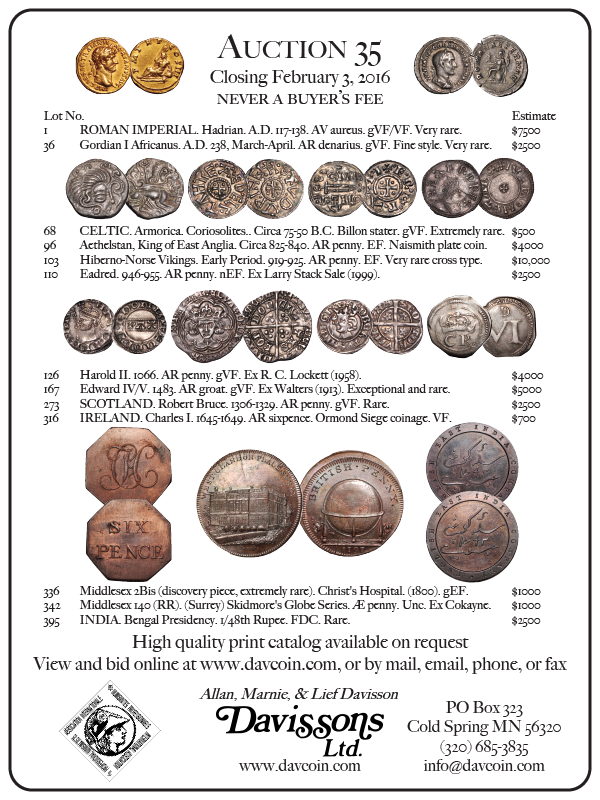
PREV ARTICLE
NEXT ARTICLE
FULL ISSUE
PREV FULL ISSUE
HOW SLAVES EARNED SMALL AMOUNTS OF CASHRegarding the question of slaves earning money, Matthew Wittmann writes: My impression is that there was an informal economy that operated in the Caribbean islands/slave societies. Quite simply slavery was not absolute and slaves were able to earn money in a variety of ways, Moreover, they needed some medium to trade among themselves. Much the same thing happened in the United States and the BBC has a good overview of the question. In short, slaves did need money and low denomination coinage certainly circulated among enslaved peoples.
Here's the text of the BBC History Extra item Matthew referenced. Thanks! -Editor
Generally speaking, slaves enjoyed few material benefits beyond crude lodgings, basic foods and cotton clothing. Still, some plantation slaves were able to earn small amounts of cash by telling fortunes or playing the fiddle at dances. Others sold poultry, meats and liquor or peddled handicrafts. In some cases, slaves could earn money from their master if they performed tasks with particular skill. The masters, for their part, saw small cash incentives as a way to encourage productive work habits. In the towns, cities and manufacturing areas of the Upper South, slaves were able to earn money thanks to another way to manage labour: the hiring-out system. Contracts differed in terms of food, conditions and treatment, but most slaves hired out to work for others could expect to earn wages for working beyond what was considered a working day. In the tobacco factories of Richmond, Virginia, for example, they would complete their daily quota of work and receive ‘bonus pay’ for anything after that. Some were also allowed to hire themselves out. Brokering their own deals, they paid their masters a monthly fee and kept anything they earned above the amount. Wages varied across time and place but self-hire slaves could command between $100 a year (for unskilled labour in the early 19th century) to as much as $500 (for skilled work in the Lower South in the late 1850s). Skilled cabinetmakers and joiners could sometimes earn as much as white workers; a select few could even afford to buy themselves out of bondage. To read the complete article, see:
To read the earlier E-Sylum article, see:

Wayne Homren, Editor The Numismatic Bibliomania Society is a non-profit organization promoting numismatic literature. See our web site at coinbooks.org. To submit items for publication in The E-Sylum, write to the Editor at this address: whomren@gmail.com To subscribe go to: https://my.binhost.com/lists/listinfo/esylum All Rights Reserved. NBS Home Page Contact the NBS webmaster 
|